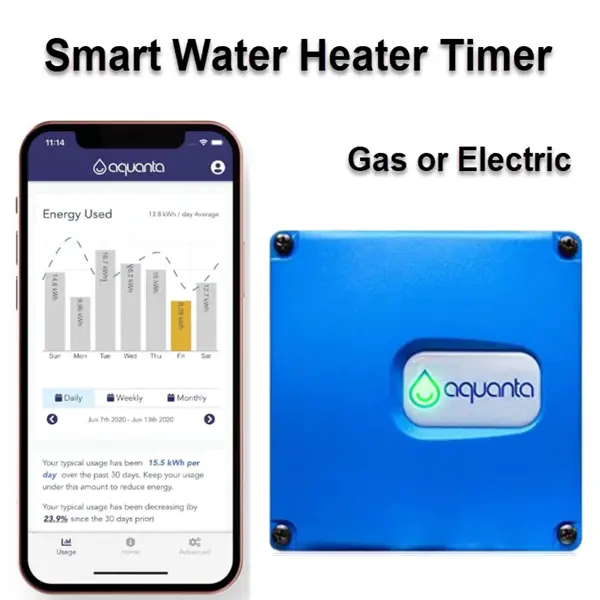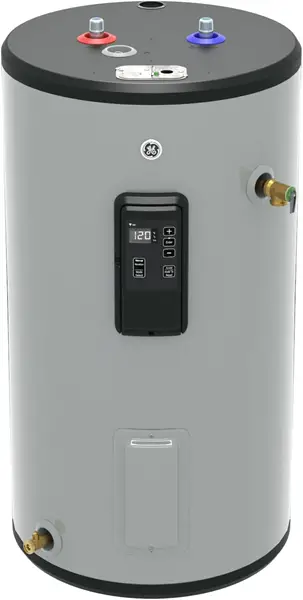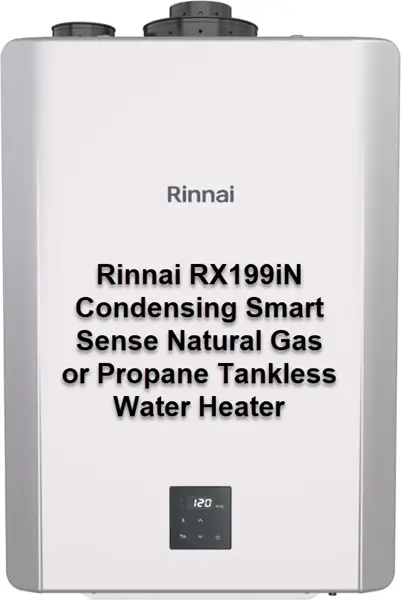Everyone wants to reduce their utility bills while maintaining comfort and efficiency. One area that has seen remarkable advancements is water heating technology.
Traditional water heaters can significantly drain energy, but smart water heaters offer an innovative solution. These intelligent devices provide greater control over water usage, reduce wasted energy, and ultimately lower monthly expenses.
But how effective are they really? Let’s explore how a smart water heater can help you save money and whether investing in one is worth it.
Table of Contents
Understanding How a Smart Water Heater Works
A smart water heater uses advanced technology to optimize water heating efficiency. Unlike conventional models, these heaters have sensors, Wi-Fi connectivity, and machine-learning capabilities to adjust water temperature based on usage patterns.
That means they only heat water when needed, reducing unnecessary energy consumption.
Many models can be controlled remotely via smartphone apps, allowing homeowners to adjust settings and monitor usage even when they’re not at home.

Lowering Your Utility Bills: Energy Efficiency and Cost Savings
One of the primary advantages of a smart water heater is its ability to reduce energy waste. Traditional water heaters maintain a hot water supply, even when not used. This results in standby heat loss, which can be costly.
On the other hand, smart water heaters use demand-based heating, meaning they only activate when necessary. This efficiency leads to noticeable savings on monthly utility bills, making them an eco-friendly and budget-friendly option.
Smart Features That Make a Difference
Modern smarter water heaters come with various features designed to optimize energy consumption. Some of the most impactful include:
- Learning technology: These heaters analyze your household’s water usage patterns and adjust heating schedules accordingly.
- Vacation mode: When you’re away, the heater can switch to an energy-saving mode, preventing unnecessary heating.
- Leak detection: Some models notify homeowners of leaks or malfunctions before they become major issues, preventing costly repairs.
- Remote control: Adjust temperature settings and monitor energy usage from your smartphone, allowing for greater control and efficiency.
Comparing Smart Water Heaters to Traditional Models
Traditional water heaters rely on preset temperatures and function continuously, even when hot water isn’t needed. That leads to wasted energy and higher bills.
Todays smarter water heaters, however, use adaptive technology to minimize waste and heat water efficiently.
Over time, the savings on electricity or gas bills can offset the initial cost of upgrading to a smart model.

How Much Can You Expect to Save?
The savings depend on household size, water usage habits, and local energy rates. Smart water heaters can reduce water heating costs by 10-20% annually.
If your current water heating expenses are $500 per year (average cost in the USA), switching to a smart model could save you between $50 and $100 annually.
While this may not seem significant initially, these savings accumulate over time and contribute to lower household energy consumption.

Eco-Friendly Benefits of Smart Water Heaters
Reducing energy waste not only saves money but also benefits the environment. A smart water heater will help lower your home’s carbon footprint by using less electricity or gas.
Many models are also compatible with solar power systems, making them an excellent choice for homeowners looking to embrace sustainable living.
Long-Term Durability and Maintenance
Smart water heaters tend to last longer than traditional models because they operate more efficiently and avoid unnecessary wear and tear.
Many include self-diagnostic features that alert homeowners to potential issues before they escalate into costly repairs. This proactive maintenance capability extends the unit’s lifespan and reduces the likelihood of unexpected breakdowns.
Saving Money When Moving with a Smart Water Heater
If you’re looking to save money when moving, every cost-cutting strategy counts—from decluttering before your move to finding ways to reduce long-term expenses in your new home. However, one often-overlooked way to save is by investing in a smart water heater.
If you’re selling your current home, a smart water heater can be a valuable feature that attracts buyers and potentially increases your home’s value.
On the other hand, if you’re moving into a new home, upgrading to a smart water heater right away can lead to significant energy savings from the first day, helping you cut down on utility costs.
Alongside smart investments like this, you can lighten the financial load by removing unnecessary items, collecting free packing materials instead of buying them, and hiring movers strategically—booking during off-peak times or opting for partial DIY moving services to reduce costs.
Every small step adds up, ensuring you keep more money in your pocket while making your move as smooth and efficient as possible.

Choosing the Right Smart Water Heater for Your Home
When selecting a smart water heater, consider your household’s hot water demand, energy source (electric or gas), and available smart features. Some models offer hybrid technology, combining heat pumps and traditional water heating elements for maximum efficiency.
Researching different brands and reading customer reviews can help you figure out which model best suits your needs and budget.
Additional Ways to Save Money with Smart Home Technology
A smart water heater is just one component of an energy-efficient home. Pairing it with other smart home devices, such as programmable thermostats and energy-efficient appliances, can amplify your savings.
Many utility companies also offer rebates and incentives for upgrading to energy-efficient water heaters, reducing the upfront cost.

Conclusion
A smart water heater is a worthwhile investment if you’re looking to lower your utility bills and improve energy efficiency.
By using adaptive technology, reducing standby heat loss, and offering remote control features, these modern appliances help reduce unnecessary energy use while ensuring a steady hot water supply.
With the added benefits of durability, eco-friendliness, and potential rebates, upgrading to a smart water heater can be a smart financial decision.
Whether upgrading your current home or moving into a new one, choosing a smart water heater can contribute to long-term savings and a more sustainable lifestyle.
